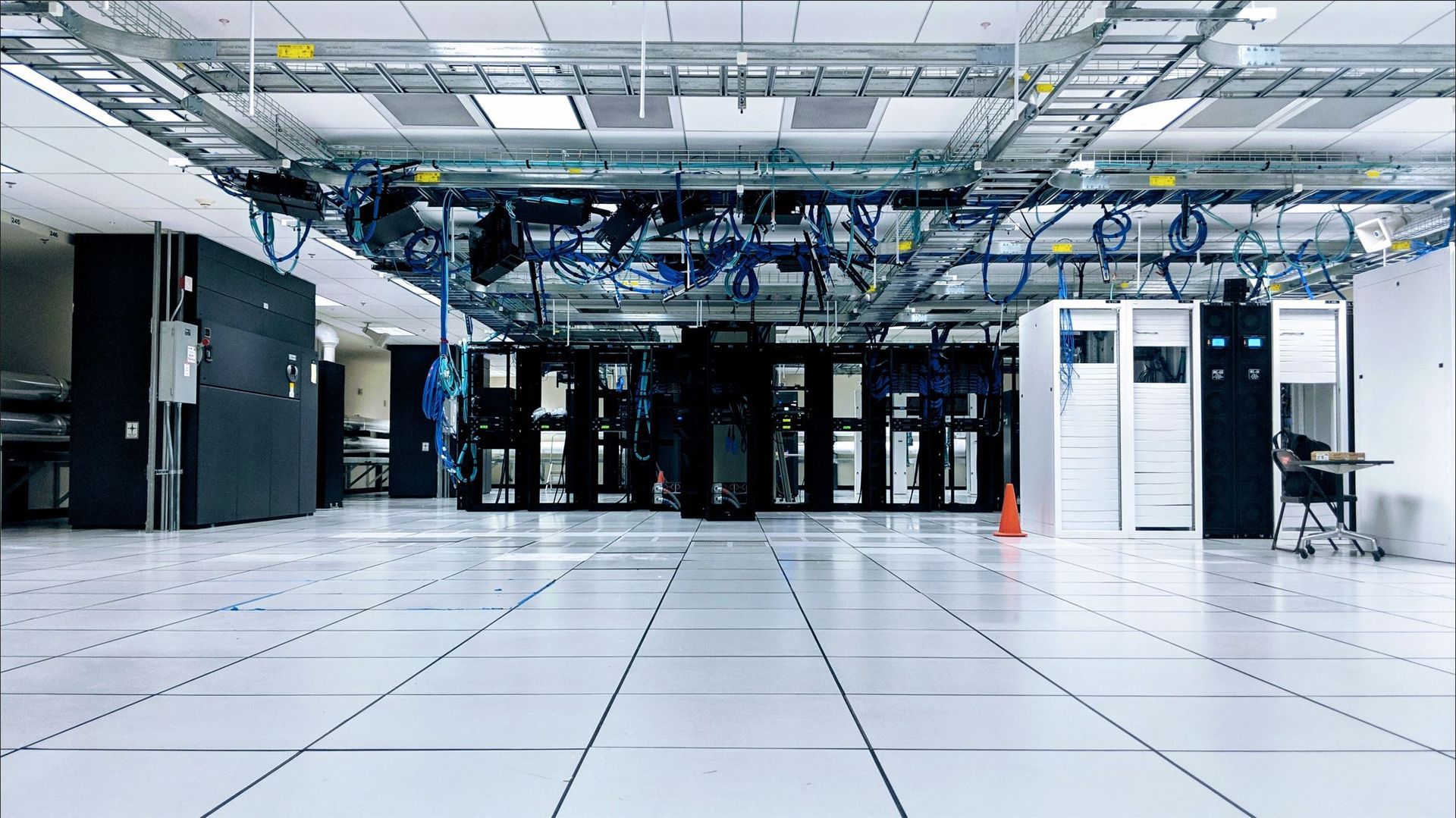The Impact of Artificial Intelligence on Business Operations
Learn How Artificial Intelligence is Changing the Ways Businesses Operate

Executive Summary ~1 min
The role of Artificial Intelligence (AI) in modern business operations is increasingly prominent, offering new opportunities for growth and innovation. To remain competitive and maximize the potential benefits of AI, businesses must understand its impact on their industry and adapt accordingly.
The ways in which AI can be integrated into business operations for maximum impact are vast, from automating repetitive tasks to analyzing vast amounts of data quickly and accurately. Industries such as finance, healthcare, and manufacturing have already seen benefits from AI integration. The potential for AI to revolutionize the way businesses operate and compete is immense.
Automating tasks using AI can greatly improve operational efficiency, leading to cost savings and reduced errors. AI can also play a vital role in data analysis and insight generation, providing businesses with valuable insights and predictions to inform decision-making. AI can even augment human capabilities and improve the quality of work, enabling employees to focus on higher-value tasks that require creativity and critical thinking.
Personalization and improved customer service are other key areas in which AI can benefit businesses. AI-powered chatbots and other tools can provide more efficient and effective customer service, leading to stronger relationships with customers.
However, it is important for businesses to address legal and ethical concerns related to AI. Failing to do so can result in significant risks and consequences. Companies must develop policies and procedures that align with legal and ethical frameworks to ensure AI is adopted in a responsible and ethical manner.
Overall, the transformative potential of AI for businesses across industries is enormous. Understanding its impact can help businesses identify opportunities for growth and innovation. Adopting AI in a responsible and ethical manner can ensure maximum benefits while minimizing risks.
Introduction
~19 min
As we delve into the era of Artificial Intelligence (AI), its profound impact on businesses of all sizes is indisputable. Here's an exploration into the seismic shifts AI is catalyzing within business ecosystems:
- Task Automation: The advent of AI has imbued enterprises with the power to mechanize procedures that were traditionally manual, liberating employees to concentrate on more strategic responsibilities. This has had the dual impact of time and cost efficiency.
- Insightful Data Analysis: The prowess of AI in processing and interpreting colossal datasets swiftly and accurately equips businesses with real-time, actionable insights. This empowers them with a competitive edge, enabling them to preempt market trends.
- Augmentation of Human Capabilities: Amidst concerns of AI's potential to displace jobs, it's critical for enterprises to harmonize the deployment of AI technologies with the recognition of human skills and wisdom. Striking this balance is pivotal to sustainable business growth.
- Personalization and Customer Service Enhancement: The introduction of AI-driven chatbots has heralded a new epoch in customer service, offering round-the-clock support and instantaneous query resolution.
- Legal and Ethical Implications: With AI permeating the business landscape, it's imperative for organizations to comprehend its ramifications and maintain compliance with the pertinent legal and ethical norms.
In summary, AI remains at the forefront of reshaping the contours of the workplace, playing a pivotal role in fostering growth and evolution across diverse sectors.
AI and Business
Artificial Intelligence is not merely a concept of the future; it is the game-changer that has already begun to redefine the business landscape. Tools empowered by AI, like MeaningCloud, offer businesses the capability to automate an array of tasks that have traditionally required human intervention. Let's consider chatbots, for instance. These marvels of AI have gradually taken over customer service roles in various industries. Wendy's, the popular fast-food chain, is a testament to this trend, having collaborated with Google to launch an AI chatbot that manages drive-through orders, a role traditionally held by humans.
Beyond customer service, AI has revolutionized data analysis within business operations. Companies generate enormous data volumes that can be daunting for humans to analyze manually. AI tools, armed with sophisticated algorithms and machine learning capabilities, can navigate these data oceans swiftly and accurately, unearthing valuable market trends and consumer behavior insights that would be near impossible for human analysts to discover.
Moreover, businesses have started integrating AI into their decision-making processes. Machine learning algorithms can unravel complex scenarios and forecast outcomes by analyzing copious amounts of historical data and patterns. This empowers companies to make more informed decisions, simultaneously allowing swift strategy adaptation in response to fluctuating market conditions.
The Ways AI can be Integrated Into Business Operations for Maximum Impact
AI's integration into business operations isn't just about efficiency; it's about transformation. One of AI's most promising applications lies in automation. This can redefine industries by refining processes and reducing human error. By automating repetitive tasks, employees can concentrate on higher-order tasks that demand creativity and problem-solving acumen, enhancing both productivity and job satisfaction.
Predictive analytics is another domain where AI can make a significant impact. Companies can harness machine learning algorithms to analyze enormous data volumes, identify patterns, and predict future trends. This empowers businesses to make more informed decisions, from inventory management to marketing strategies.
AI-powered chatbots have become a mainstay in customer service operations. These bots leverage
natural language processing and machine learning to comprehend customer inquiries and offer relevant real-time responses. This not only improves response times and overall customer satisfaction but also liberates support staff to address more intricate issues.
Examples of Industries That Have Already Benefited From AI Integration
AI's integration has already reaped substantial benefits across various industries. Healthcare, for example, has embraced AI-powered technologies to aid disease diagnosis and treatment. By analyzing copious amounts of patient data, AI has empowered physicians to make accurate predictions and diagnoses. In manufacturing, AI-driven systems facilitate equipment maintenance and production process optimization by monitoring machine performance. The finance sector has also reaped the benefits of AI integration. Banks and financial institutions use AI algorithms to detect fraudulent transactions, forecast market trends, and tailor customer services. Similarly, the retail industry has adopted AI technologies like chatbots for customer service and recommendation engines that suggest products based on a shopper's browsing history or buying behavior.
The ripple effect of AI across businesses is undeniable. It has revolutionized decision-making processes and operational efficiency across various industries. As companies continue to embrace this disruptive technology, we can look forward to even more innovative applications.
The Potential for AI to Revolutionize the Way Businesses Operate and Compete
AI harbors the potential to revolutionize business operations and competition in an ever-evolving marketplace. Its capability to automate repetitive tasks liberates employees for higher-order work that demands creativity and problem-solving skills. This can amplify productivity and efficiency while slashing the costs tied to manual labor.
AI can provide businesses and decision-makers with invaluable insights into customer behavior and market trends through data analysis. Using machine learning algorithms, businesses can analyze vast data volumes in real-time, allowing prompt, informed decision-making. This can enable companies to stay one step ahead of their competition by identifying new opportunities or potential threats before they balloon into significant issues.
Artificial Intelligence carries the potential to transform business operations in ways we are yet to grasp fully. As more and more companies adopt this technology, understanding how to effectively leverage AI capabilities, while minimizing any negative impact on employees or customers, will become increasingly crucial.
Automating Tasks: Efficiency & Cost Savings
In the bustling arena of business operations, task automation is a beacon of hope that promises both heightened efficiency and significant cost savings. Companies are increasingly turning to the power of Artificial Intelligence and machine learning to pinpoint and automate repetitive tasks that consume valuable time and resources. This automation, achieved through advanced software or robotics, liberates employees to devote their energies to strategic initiatives that demand their higher cognitive involvement.
The benefits of task automation extend beyond just efficiency. It also serves as an antidote to errors and inconsistencies that can plague manual processes. Machines are not subject to human fallibility, thereby ensuring more precise data entry and processing. The time saved, and the risk of costly errors diminished present a compelling case for automation.
Automation empowers businesses to scale up operations at a faster pace without the need for proportional staff increases. With AI-driven tools tackling routine tasks, companies can maintain their competitive edge while keeping a tight rein on costs. In essence, task automation through AI technologies offers a robust strategy for businesses to navigate the fast-paced world of today more efficiently and effectively.
How AI Can Automate Repetitive Tasks and Improve Operational Efficiency
Artificial Intelligence is rewriting the playbook for business operations. Its prowess in automating repetitive tasks offers a potent means to boost operational efficiency by streamlining processes and curtailing costs tied to manual labor. Mundane tasks such as data entry, scheduling appointments, and responding to customer inquiries can now be entrusted to AI-powered software.
The transformative potential of AI isn't confined to a business's back-end operations. It can also enhance the customer experience by accelerating response times and offering personalized recommendations based on user behavior. As AI continues to evolve, it promises to reshape every facet of business operations, from supply chain management to
marketing strategies, making it an indispensable tool for any modern organization keen on staying competitive in today's digital landscape.
The Cost Savings Businesses Can Achieve Through AI-Powered Automation
In today's competitive business environment, the quest for operational efficiency and process optimization is perpetual. A promising solution that has emerged is AI-powered task automation, which finds applications across diverse industries, from manufacturing and healthcare to finance and beyond.
A key advantage of AI-driven automation is the cost savings it offers. By automating repetitive tasks that would otherwise require human labor, businesses can significantly reduce their operational costs. Tasks such as data entry or customer support can now be automated through chatbots and other AI tools, leading to substantial time and cost savings.
The Potential for AI to Improve Accuracy and Reduce Errors in Critical Business Processes
AI holds the promise of a paradigm shift in how businesses operate. Among its most impactful benefits is its ability to enhance accuracy and minimize errors in critical business processes. With advanced algorithms, machine learning, and predictive analytics, AI can swiftly and accurately analyze vast amounts of data, uncovering patterns and insights that might elude human analysts.
Consider the financial services sector, for instance, where AI-powered tools can detect fraudulent activities more effectively than humans. In healthcare, AI can assist doctors in diagnosing diseases more accurately by analyzing patient data more comprehensively than any human could. These instances underscore the transformative potential of AI in improving accuracy and reducing errors in critical business processes across diverse sectors.
However, it's crucial for businesses to understand that harnessing AI's capabilities requires both investment and training. They must invest in technology infrastructure while equipping their employees with the necessary skills to collaborate smoothly with machines. The results, however, are well worth it—reducing costs associated with manual labor and boosting efficiency across all operation levels, leading to increased profits for businesses that embrace this transition towards AI-fueled automation.
Data Analysis & Insight Generation
Data analysis and the generation of insights have ascended the ranks to become critical components of business operations, a development catalyzed by the rise of artificial intelligence. AI-driven tools are now facilitating organizations to gather, process, and analyze enormous volumes of data in real-time. The outcome? Valuable insights into customer behavior, market trends, and operational efficiency that companies can harness to drive growth and profitability.
A major perk of using AI for data analysis is its knack for detecting patterns and anomalies that might elude human analysts. This means companies can unearth opportunities or potential issues faster than they could using manual processing methods. Plus, AI algorithms can learn from past data, progressively honing their accuracy.
Importantly, the benefits of AI-powered data analysis tools are not without their challenges. For instance, the quality of input data is paramount, as inaccuracies or biases in the source material can compromise and compound the insights produced. This is the principle of
Garbage In, Garbage Out (GIGO). Moreover, businesses must tread carefully when collecting customer data to avoid running afoul of regulations, such as
General Data Protection Regulation (GDPR), or damaging their reputation. But, if handled correctly, AI-based analytics can confer significant advantages to modern businesses looking to compete in today's rapidly evolving landscape.
The Role of AI in Processing and Analyzing Large Amounts of Data Quickly and Accurately
AI's influence on business operations is significant, especially in its capacity to process and analyze large volumes of data swiftly and accurately. This ability has triggered a revolution in numerous industries where data analysis is integral to decision-making. AI-powered tools allow businesses to capture and scrutinize substantial amounts of structured and unstructured data from various sources, including social media platforms, customer feedback forms, and sales records.
Thanks to machine learning algorithms fostering intelligent automation processes, businesses can detect patterns that would otherwise be too complex for human discernment. These insights assist organizations in making informed decisions, optimizing their operations for efficiency and profitability while mitigating risk factors. Furthermore, AI tools can deliver predictive analytics that forecast future trends in markets or customer behavior based on existing datasets.
In essence, integrating AI into business operations has deeply impacted how companies leverage data as a vital asset in decision-making. The speed and accuracy of this technology have allowed organizations to glean insights quickly enough to stay ahead of their competitors while decreasing operational costs tied to labor-intensive tasks like data entry or analysis.
How AI Can Provide Valuable Insights and Predictions to Inform Business Decision-Making
Artificial Intelligence is changing the game for businesses, offering valuable insights and predictions that inform decision-making. With AI's assistance, data collection and analysis have become vastly more efficient, enabling organizations to identify patterns and trends in real-time.
A significant advantage of deploying AI in business operations is that it allows companies to make more informed decisions based on accurate data. By examining past performance metrics, market trends, and consumer behavior patterns, AI can forecast future outcomes with a precision that surpasses traditional methods.
Moreover, AI has made substantial progress in automating many routine tasks, such as addressing customer service inquiries or analyzing financial data. This automation liberates time for employees to concentrate on strategic planning and creative problem-solving rather than routine administrative work.
The impact of AI on business operations is monumental. It's ushered in a paradigm shift in how companies collect data and make decisions, offering valuable insights that manual analysis alone would struggle to uncover. As technology continues its rapid advance, it's vital for forward-looking businesses to embrace this transformative technology to the fullest extent.
The Potential for AI to Identify Patterns and Trends That Would be Impossible for Humans to Detect
These emerging technologies harbor the potential to transform business operations by identifying patterns and trends that would be beyond human detection. For instance, AI-driven tools can monitor social media platforms to identify patterns in customer sentiment toward a specific brand or product. Marketing teams can then use this information to refine their targeting strategies and devise more effective campaigns. Additionally, AI can help businesses optimize their supply chain operations by analyzing data on inventory levels and order history to predict demand accurately. This is due to these technologies being able to store and process all of the historical data made available to it, and being able to pick up on micro-level trends and changes that a human would not notice.
Moreover, AI's ability to identify patterns and trends extends beyond business operations. In healthcare, for example, AI algorithms are being developed to
detect early warning signs of diseases such as heart disease that may not be noticeable through traditional diagnostic methods. The potential applications of this technology are vast, promising to reshape industries across the spectrum.
Enhancing Human Skillsets
The advent and breakthrough of artificial intelligence has undoubtedly stirred concerns about potential job loss. However, instead of phasing humans out, AI is poised to empower them, augmenting human skillsets and improving business operations in unprecedented ways. For instance, AI is a powerful ally in automating mundane tasks like data entry or customer service support, liberating workers to concentrate on more intricate and creative tasks.
Moreover, AI serves as a formidable assistant in providing valuable insights and analyses that inform decision-making. By sifting through colossal amounts of data faster than any human could, AI-powered tools can unearth patterns and trends that might elude human analysts. This ability equips businesses with the tools to make more precise predictions and fine-tune their strategies accordingly.
While some perceive AI as a threat to human employment, it's more accurate to view it as a springboard for workers to acquire new skills and collaborate with machines in a manner that maximizes both efficiency and creativity. With technology propelling forward at an extraordinary pace, it's crucial for individuals and businesses to evolve by honing their skillsets through continuous learning and development, using AI to level the playing field.
How AI Can Augment Human Capabilities and Improve the Quality of Work
AI is a game-changer in the business landscape, dramatically altering how we work and interact with machines. Contrary to fears of AI replacing human workers, it's more accurate to view AI as a tool for enhancing their capabilities and improving work quality.
AI can stoke the creativity of human workers by providing innovative tools for ideation or content creation. By applying machine learning algorithms that learn from extensive datasets, professionals across different fields can unlock new possibilities. The integration of AI into business operations paves the way for enhanced efficiency and productivity while allowing humans to channel their energies into strategic or creative problem-solving.
The Ways AI Can Enable Employees to Focus on Higher-Value Tasks that Require Creativity and Critical Thinking
Artificial intelligence is not just about automation; it's about amplification. A crucial advantage of AI is its ability to redirect employees' focus onto higher-value tasks. By automating routine or repetitive tasks, AI frees up employees' time for more complex and strategic endeavors.
AI-powered tools like chatbots, virtual assistants, and self-service portals can handle customer inquiries, liberating customer service representatives to tackle more intricate issues. Similarly, AI can streamline data entry and analysis tasks in finance departments, enabling financial analysts to invest more time in trend analysis and strategic decision-making.
By replacing mundane manual processes with intelligent systems, businesses can empower their workforce to apply their skills creatively, adding greater value to the organization. With fewer low-level activities to attend to, employees can fully commit to high-level reasoning – generating novel ideas for growth or solving intricate problems – ultimately leading to improved business outcomes.
The Potential for AI to Revolutionize the Way Humans Work and Improve Job Satisfaction
AI harbors the potential to radically alter the way we work and elevate job satisfaction. One way AI improves the work experience is by automating repetitive tasks, freeing employees from tedious activities. This shift allows workers to focus on more engaging and rewarding tasks requiring critical thinking, which in turn can enhance job satisfaction.
Moreover, AI-powered solutions can help workers make decisions faster and more efficiently. For instance, if an employee does not need to search around in a data repository for a specific item, but instead can ask an internal chatbot that can provide the information, they can stay on the same thought process and finish what they are doing without being distracted. This not only boosts productivity but also amplifies job satisfaction, as workers feel their contributions are more meaningful and less mentally taxing.
Finally, AI can foster a healthier work-life balance by reducing working hours through automation or offering remote working options. This reduction in stress can lead to happier, more productive employees. It's clear that AI technology holds immense potential for enhancing job satisfaction in and out of the workplace. The challenge for companies now lies in implementing these technologies effectively.
AI for Personalization & Improved Customer Service
The integration of artificial intelligence into business processes has triggered a paradigm shift, particularly in the realms of personalization and customer service. AI-enabled tools empower businesses to mine vast data repositories, gaining insights into customer behavior and preferences, thereby customizing their offerings to meet individual needs. This degree of personalization has become non-negotiable in the current business climate, where customers anticipate and value personalized experiences.
AI's transformative influence is significantly felt in the customer service sector. Thanks to chatbots and virtual assistants powered by
Natural
Language
Processing (NLP), businesses can offer round-the-clock support without constant human intervention. These AI tools can answer straightforward queries, guide users through intricate processes, and even manage transactions seamlessly. The result? Customers enjoy speedier and more efficient support, while businesses avoid the increased costs associated with expanding their support teams.
In essence, AI has redefined business approaches to personalization and customer service, offering actionable insights into customer behavior and preferences while also simplifying support processes through the use of chatbots and virtual assistants. With technology sprinting ahead at breakneck speed, the stage is set for even more innovation, as companies explore fresh ways to leverage AI to enhance operational efficiency and enrich the customer experience at every interaction.
How AI Can be Used to Personalize Customer Experiences and Improve Satisfaction
Artificial Intelligence has rewritten the rulebook on business operations by facilitating the personalization of customer experiences. AI equips companies with the ability to analyze customer purchase histories, preferences, and behaviors, thereby crafting tailored recommendations and offers. This strategy not only spikes customer satisfaction but also nurtures brand loyalty and can increase sales.
Additionally, AI-powered chatbots offer personalized support to customers around the clock, trimming response times and boosting resolution rates. This also lets companies gather data on common questions and complaints, thereby refining their product or service offerings.
Predictive analytics, powered by AI tools such as machine learning algorithms, allow businesses to anticipate customer needs before they materialize. This foresight enables them to devise proactive solutions to address potential issues before they escalate, thereby delivering a stellar customer experience. By exceeding client expectations, companies are more likely to retain existing customers and attract new ones through positive word-of-mouth.
The Potential for AI to Provide More Efficient and Effective Customer Service Through Chatbots and Other Tools
Among AI's most profound impacts on business operations is its potential to revolutionize customer service. Thanks to chatbots and similar tools, businesses can deliver efficient and effective support to their customers without human involvement.
Chatbots are increasingly popular in customer service for their capacity to handle a multitude of inquiries simultaneously. Through the growth of
Generative
Pre-trained
Transformers (GPT) and
Natural
Language
Processing (NLP), the new generations of chatbots can understand and answer a much wider range of questions that are posed to it. Gone are the days of a pre-configured chatbot that only can accept and answer a set list of questions; these next generation of chatbots can offer round-the-clock assistance, field repetitive questions, and even suggest products based on a customer's past interactions with the company without customers needing to select messages from a pre-selected list with canned answers.
Furthermore, AI tools such as
sentiment analysis can help businesses gauge customer sentiment towards their products or services by scrutinizing social media posts, reviews, and other online feedback. This invaluable information can guide product or service improvements and shape targeted marketing campaigns. In sum, AI holds immense potential for enriching the customer service experience while liberating precious resources for businesses.
The Benefits of AI in Helping Businesses Build Stronger Relationships With Their Customers
Artificial intelligence has reinvented the way businesses interact with their customers, enabling the cultivation of stronger relationships through personalized experiences. AI-powered chatbots can field customer queries and offer assistance around the clock without human involvement. This not only saves time but also guarantees prompt and accurate responses, contributing to heightened customer satisfaction.
AI algorithms can analyze customer data to pinpoint behavior and preference patterns. This insight can then inform personalized marketing campaigns and recommendations, making customers feel valued and understood. For instance, online retailers can use
AI to recommend products based on a customer’s browsing history or purchase behavior.
Moreover, AI-enabled tools like sentiment analysis allow businesses to monitor customer feedback across social media and other online platforms. They can swiftly identify and respond to negative comments or reviews, preemptively mitigating any potential fallout. By leveraging these technologies, businesses are better equipped to forge lasting relationships with their customers by understanding and meeting their needs, preferences, and expectations.
Legal and Ethical Considerations
In the journey to integrate AI into their operations, businesses often encounter a labyrinth of legal and ethical considerations. A multitude of laws and regulations have been established to safeguard consumers, including privacy laws like GDPR and California Consumer Privacy Act (CCPA). In order to adhere to these laws, companies must be vigilant about how they collect, process, and store customer data.
Beyond the legal landscape, ethical considerations also demand careful attention. The impact of AI use on society at large cannot be overlooked. Businesses should strive for transparency in their use of customer data and need to ensure their algorithms do not inadvertently foster biases or discrimination.
While AI has the potential to overhaul business operations, companies must thoughtfully weigh the legal and ethical implications of AI integration. By doing so, they can foster customer trust and sidestep potentially harmful repercussions down the line.
The Importance of Addressing Legal and Ethical Concerns Related to AI
One of the most critical challenges associated with AI's role in business operations is the assurance that the technology is utilized in a lawful and ethical manner. This encompasses areas such as data privacy, algorithmic bias, and the potential for job displacement. Ignoring these issues could spell trouble for both businesses and society at large.
When it comes to collecting, storing, and using data to train AI algorithms, businesses must strictly comply with applicable laws and regulations. Additionally, they must be proactive in ensuring their algorithms do not harbor biases against certain groups or individuals. Failure to address these concerns can culminate in legal action or reputational damage.
Moreover, businesses should ponder the potential impact of AI on their workforce. While AI can streamline processes and enhance efficiency, it could also lead to job displacement in certain areas. It's imperative for businesses to consider
reskilling initiatives for potentially affected employees and exploring avenues for human-AI collaboration.
The Potential Risks and Consequences of Failing to Consider These Issues
Overlooking the potential risks and repercussions of AI can land businesses in hot water. A major risk is that improperly programmed AI systems can yield biased results, sparking discrimination against certain groups, potentially leading to legal action and reputational damage.
Additionally, AI systems could be susceptible to cyberattacks, leading to data breaches and theft of sensitive information. This risk is particularly significant for companies that heavily rely on customer data, such as those in the healthcare, legal, or financial sectors.
Neglecting the ethical implications of AI use can also breed negative consequences. For instance, if an AI system is used to make hiring or firing decisions, it may not adequately consider crucial factors such as diversity and inclusion. This could lead to a lack of diversity within a company's workforce, which has been proven to
impact business performance negatively. Thus, businesses must thoughtfully consider these issues when integrating AI systems to sidestep potential risks and ensure ethical practices.
The Need for Companies to Develop Policies and Procedures that Align with Legal and Ethical Frameworks
As AI continues to reshape the business landscape, it's vital for companies to align their policies and procedures with legal and ethical frameworks. While AI holds the potential to revolutionize business operations by boosting efficiency, cutting costs, and improving decision-making, the potential ethical implications of AI technologies cannot be ignored.
Companies should craft policies that address privacy, data protection, and bias in AI algorithms. These policies should be informed by legal mandates such as GDPR regulations and other data protection laws. Companies might also consider establishing an ethics committee or appointing an ethics officer to assess the ethical ramifications of AI technologies.
Beyond policy development, it's crucial that companies ensure their employees are well-versed in these policies and understand their application to their work. This can help prevent unintentional breaches of legal or ethical guidelines related to AI usage within the company. By developing clear, compliant policies, companies can harness the power of AI while mitigating potential risks associated with its use in business operations.
Conclusion: Unlocking Potential with AI
Harnessing the potential of AI has evolved to become a pivotal element of business operations. As technology continues to advance, AI can enhance productivity and efficiency while trimming costs. The ability to accurately analyze data and make forecasts based on that data represents a significant advantage of AI usage.
Moreover, AI can assist businesses in making superior decisions by supplying insights into consumer behavior or market trends. This intelligence can then be leveraged to fine-tune marketing strategies or devise new products that cater to consumers' needs more effectively.
Lastly, as AI becomes increasingly woven into the fabric of business operations, there will be a heightened demand for individuals proficient in this field. Consequently, investment in educating employees about AI and how it can augment their work could lead to a competitive edge in the marketplace. In summary, unlocking the potential of AI is a must for businesses aiming to stay ahead and enhance their overall performance.
The Transformative Potential of AI for Businesses Across Industries
AI is revolutionizing the manner in which businesses across different sectors operate. Its impact extends from automating mundane tasks to refining decision-making processes and birthing new products and services. For example, in healthcare, AI is being utilized to detect diseases at earlier stages and devise more effective treatment strategies. In the retail sector, it's assisting companies in personalizing customer experiences by analyzing purchasing habit data.
These technologies hold the potential to overhaul supply chain management by forecasting demand patterns and optimizing inventory levels. This will enable companies to reduce costs while improving customer satisfaction by ensuring products are always available. Also, AI-powered chatbots can offer round-the-clock customer service support, tackling common inquiries and freeing up human agents for more complex issues.
As AI continues to evolve, it's vital for businesses to stay informed about its potential applications and brace themselves for the changes it may engender. Early adopters of AI in their operations will be better equipped to compete effectively in today's dynamic business environment.
How Understanding the Impact of AI Can Help Businesses Identify Opportunities for Growth and Innovation
With AI continuing to reshape various industries, it's crucial for businesses to understand its impact on their operations. By welcoming AI technology, organizations can identify new avenues for growth and innovation. For instance, businesses can leverage machine learning algorithms to scrutinize large data sets and glean insights that can facilitate more informed decisions.
Additionally, AI-powered automation tools can streamline repetitive tasks like data entry or customer service inquiries, freeing up employees to concentrate on more value-add activities. This not only elevates productivity but also enhances the overall customer experience by facilitating quicker response times and personalized communication.
Moreover, AI technology can help businesses optimize their supply chain management processes by predicting demand patterns and pinpointing potential bottlenecks in the production cycle. This translates to cost savings through waste reduction and efficiency enhancement. By comprehending how AI impacts business operations, companies can leverage their capabilities to drive growth and innovation, staying one step ahead of the competition.
The Importance of Adopting AI in a Responsible and Ethical Manner to Ensure Maximum Benefits and Minimize Risks
A critical consideration for businesses adopting AI technology is how to ensure its usage is responsible and ethical. While AI has the potential to revolutionize business operations in areas such as customer service, marketing, and logistics, it can also pose risks if not used appropriately. For instance, there have been numerous instances where AI algorithms have yielded biased or discriminatory results due to underlying biases in the training data. This can lead to unfair treatment of certain groups or individuals.
To minimize these risks and maximize benefits, businesses should prioritize responsible and ethical AI practices from the get-go. This includes measures like ensuring training data is diverse and representative, regularly auditing algorithms for bias or unintended consequences, and providing transparency about decision-making processes involving AI. By prioritizing ethics along with performance metrics when adopting AI technology, businesses can create systems that deliver tangible value while minimizing potential harm.
In addition to mitigating risks associated with biased decision-making, responsible AI adoption also takes into account privacy and security considerations. As the amount of sensitive data gathered by companies using machine learning methods for analysis purposes (e.g., bank transactions or medical data) increases, it's imperative that this data is managed securely and transparently. Robust security measures must be implemented to prevent unauthorized access or misuse of personal information, while also ensuring transparency about what types of data are being collected and their usage.
Thank you for reading my blog post! If you found any of this information helpful or know someone who would find it useful, please share it with them. Let me know what you think in the comments below. Consider
joining my mailing list to keep learning as I continue to add value with more blog posts and articles about topics such as Information Technology Management and Marketing.









